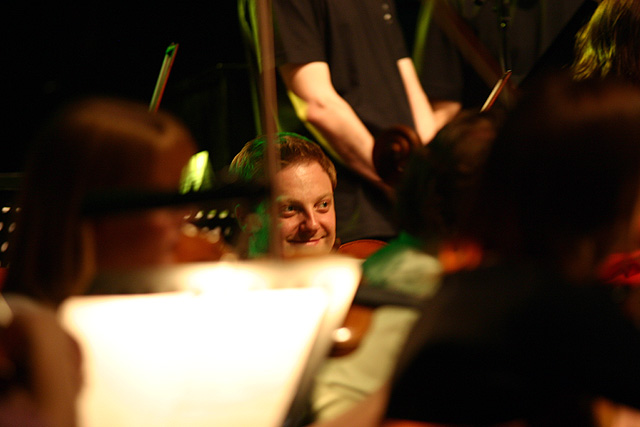Given that this blog claims to be a "review" of sorts, it seems fitting to begin 2008 with a review of a film I saw this evening, namely the latest film by Finnish director Lauri Törhönen,
Raja 1918 ("Border 1918").

The film is set during the Finnish Civil War of 1918, a year after Finland had declared independence from Russia. In a nutshell, the war was between the "Whites" (the national guard) and the "Reds" (the Bolsheviks). The film follows the young Captain Carl von Munck who is sent to the newly established border to make sure that undesirable elements (Russians, Jews, Bolsheviks) are kept out of Finland. Of course, ther's also a romantic subplot between von Munck and the local school teacher Maaria Lintu, who, it transpires, is hiding her Bolshevik fiancé from the firing squads. [The "tragedy" motif in the soundtrack was presumably a quote from
Im Treibhaus, the third movement of Wagner's Wesendonk-lieder and a study for the beginning of Act III of
Tristan and Isolde.]
Anyway, back to the film! I was most impressed by the script. In less than a hundred years spoken Finnish has changed radically and this script preserves a level of formality that younger audiences are unused to hearing. The actors delivered the antiquated dialogue convincingly.
However, far more interesting (almost than the film itself) is what the film tells us about Finnish history. Some Finns have a difficult relationship with their nation's history. To give, in my opinion, a telling example: in the July 9th edition of the
New Yorker music critic Alex Ross wrote
an extended piece about Jean Sibelius, Finland's "national composer". The article goes through each of the seven symphonies in considerable detail and, by way of offering the reader some context to the Eighth symphony, which Sibelius eventually destroyed, Ross explains that:
Then, in 1939, Hitler invaded Poland, and Finland became part of a chess game between Nazi Germany and the Soviet Union. Early in the war, Finland was applauded in the West for its hardy stand against the Soviets, and Sibelius was more popular than ever. In 1941, though, Finland aligned itself with the Germans, partly because Fascist elements had infiltrated the government and the Army, and partly because the Nazis would have taken over the country anyway.
[Alex Ross,
New Yorker July 9th 2007]
The above sentence provoked a letter of response (which I can't locate for the purposes of quotation) from none other than the Finnish ambassador to the US who dismissed Ross' summation of events as essentially untrue and proceeded to tell readers just how hard "my people" had fought for "my country". Though Finland's relationship with Nazi Germany is well documented (most recently in Prof. David Kirby's book
A Concise History of Finland), it is common in Finland to claim that there was no relationship whatsoever (the fact that Marshal Mannerheim and Hitler were on such good terms that, in 1942, the Führer paid Mannerheim a surprise visit on the latter's birthday seems easily forgotten).
Similarly, Swedish historian Henrik Arnstad caused a furore here when, in an article in Svenska Dagbladet, he suggested that "the entire Finnish foreign ministry should be sent on a crash course in history" – again in reference to the systematic denial in Finland of any dealings whatsoever with the Third Reich. [For those with Swedish, the article can be read
here.] The outcry over Arnstad's book and his subsequent articles speaks volumes about a nation still not at peace with its past.
Raja 1918 thus marks something of a departure for Finnish cinema: in gruesome detail, the film points out that the ethnic cleansing that took place in the early 1940s has its roots in the rise of nationalist sentiment during the Civil War. The film attempts to demonstrate how easily concentration camp style "quarantines" were set up along the new border and how people were only allowed into the country if they looked right (ie. didn't look Russian or Jewish) and could pronounce Finnish words without an accent. Towards the end of the film, there is even a scene in which a visiting German officer and another high-ranking Finnish officer are discussing how easy it would be to attack Russia as a unified force and that their primary objective should be to move the Finnish border beyond St Petersburg, fortify their "indigenous people", thus creating a "Greater Finland" (Suur-Suomi). Though this is 1918, the sentiment is clear.
There are numerous works of fiction on the subject of the Finnish Civil War (two recent examples being Leena Lander's
Käsky and Asko Sahlberg's
Tammilehto, neither of which are available in English), but with subtitles on a DVD this film will – and should – reach a much wider audience. Highly recommended – even for members of the Finnish foreign ministry.


